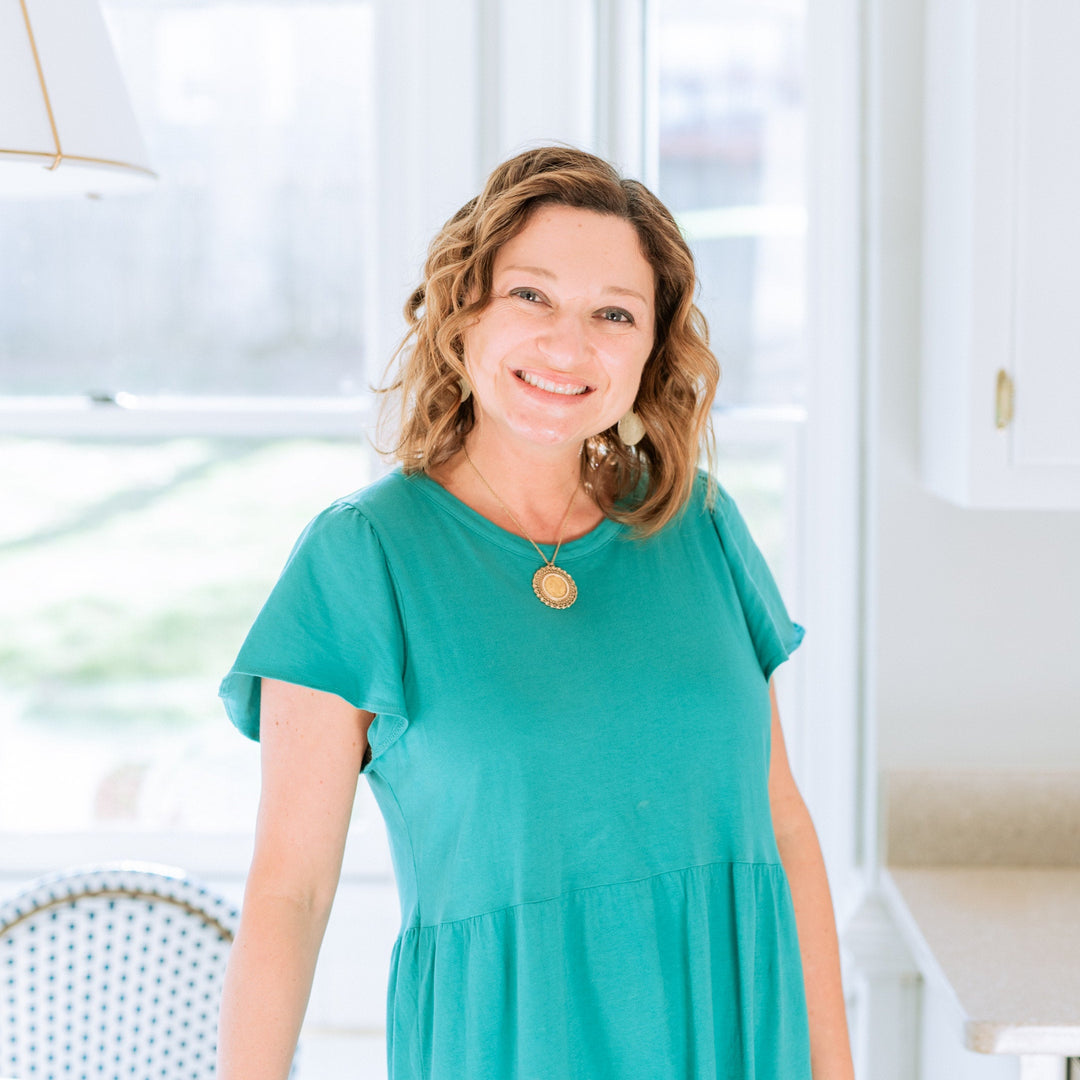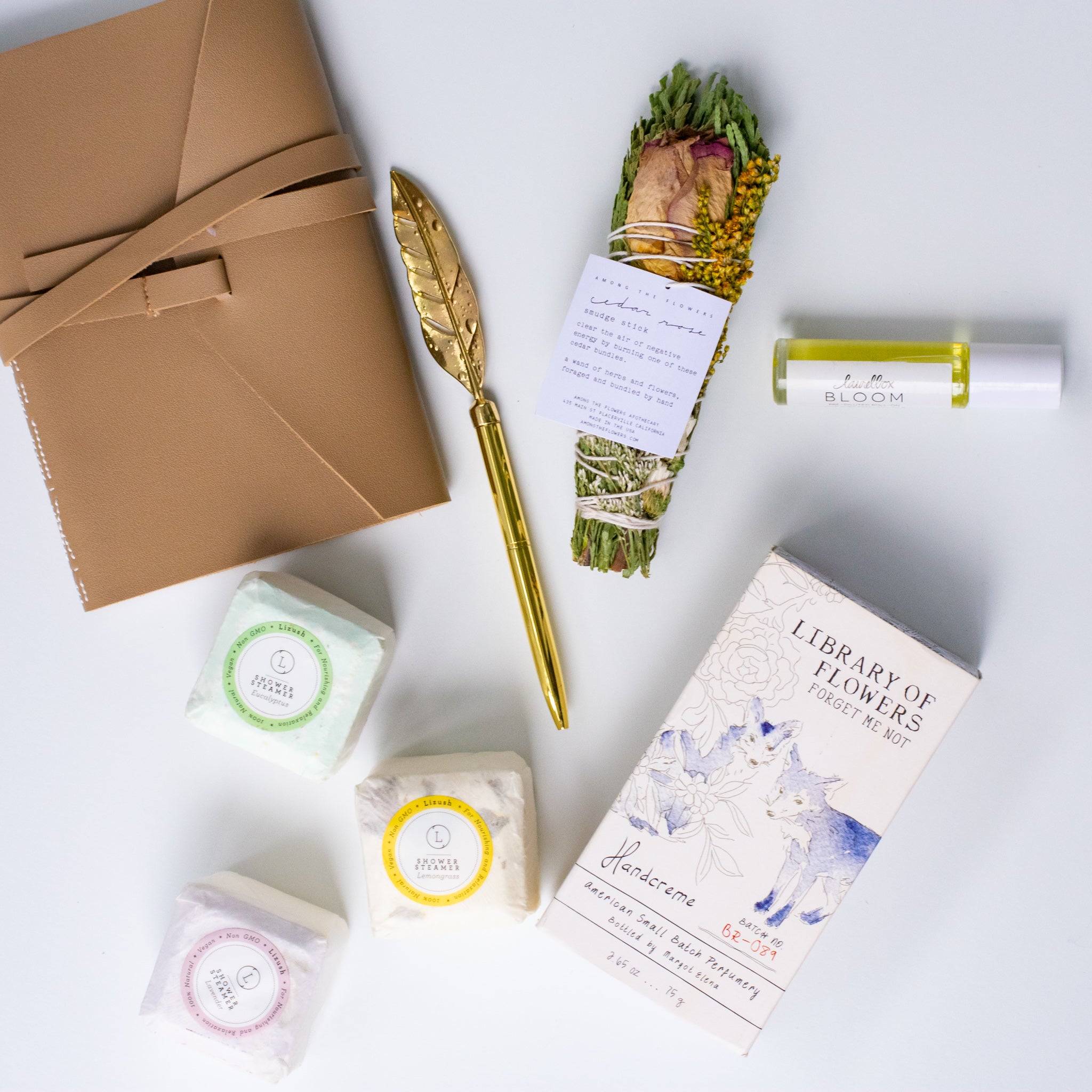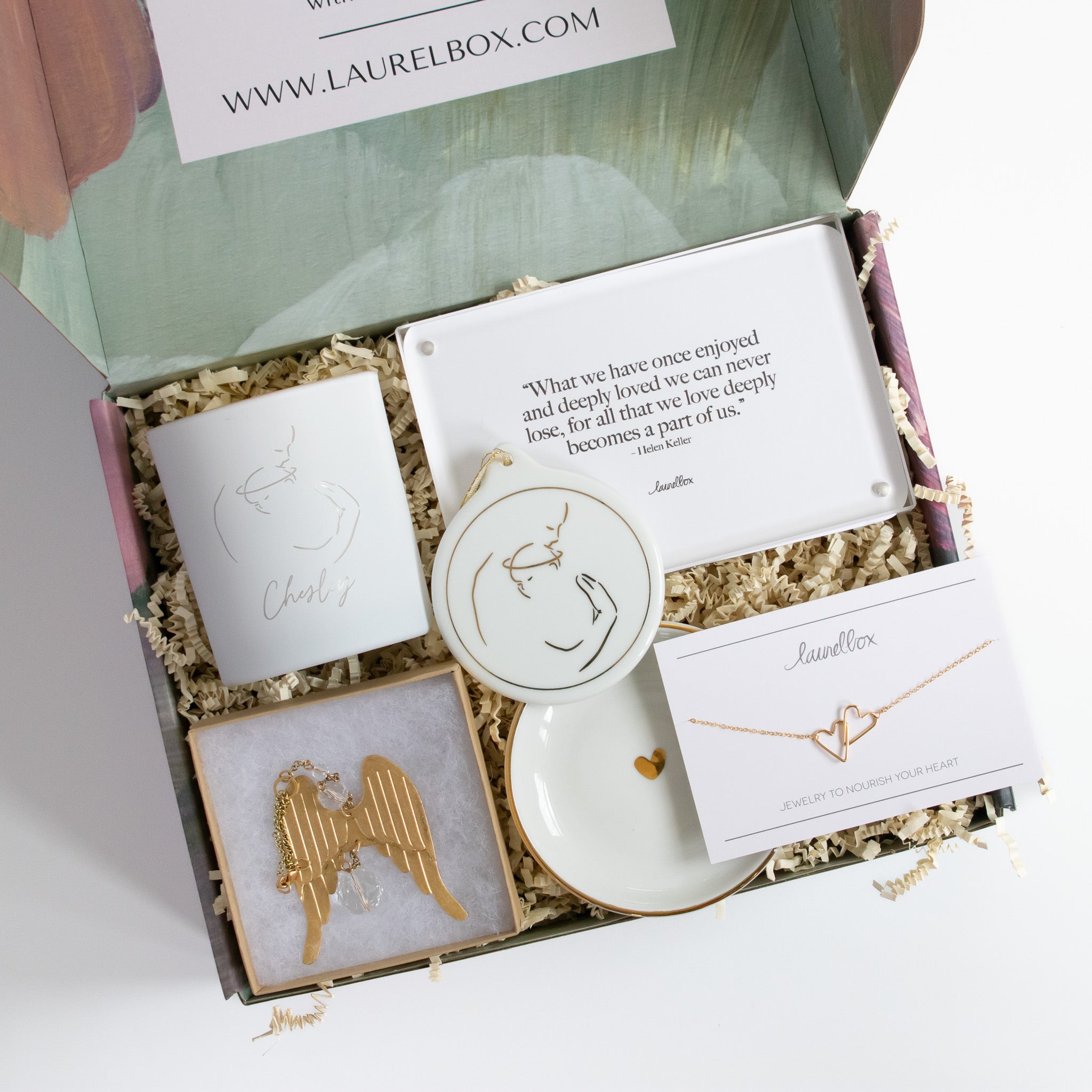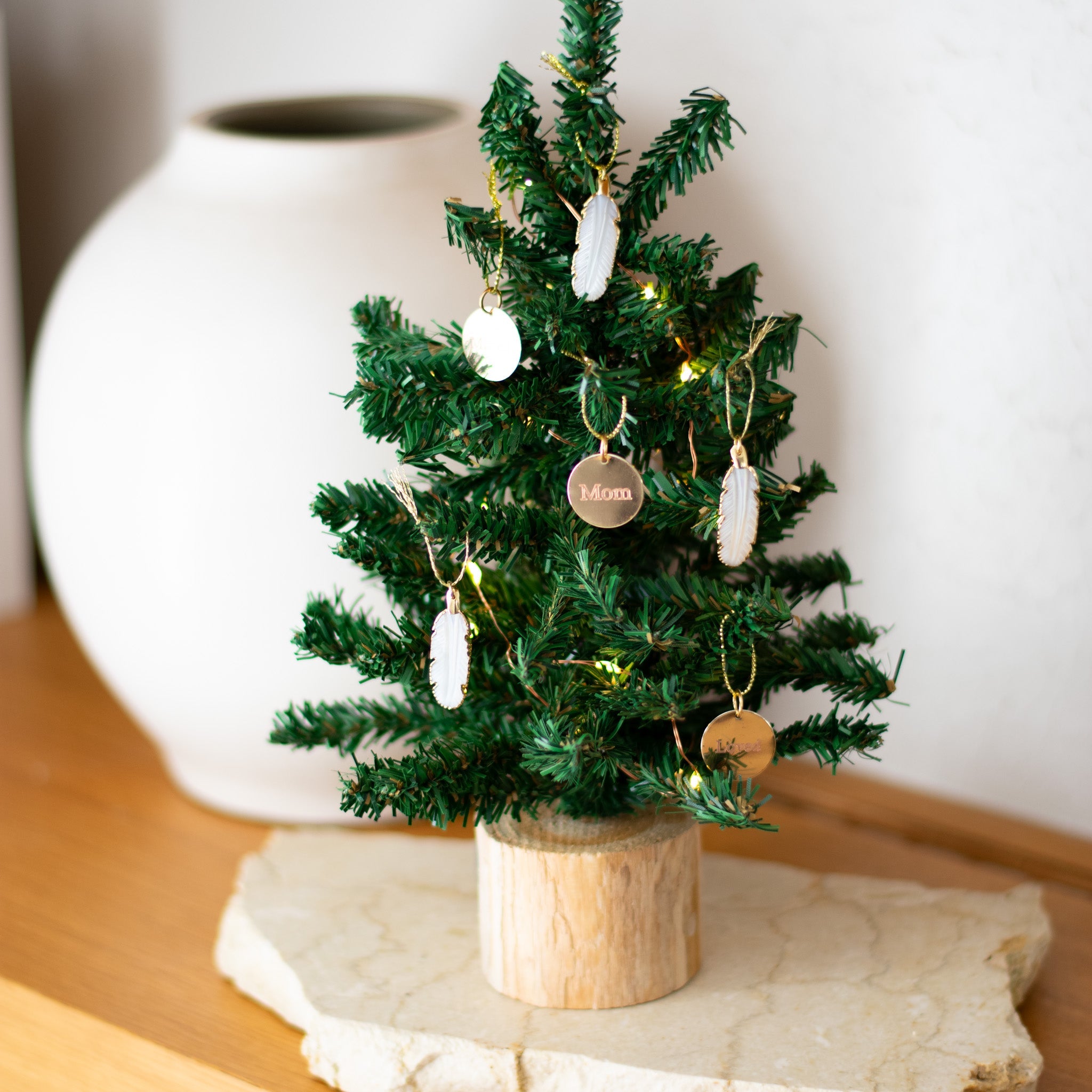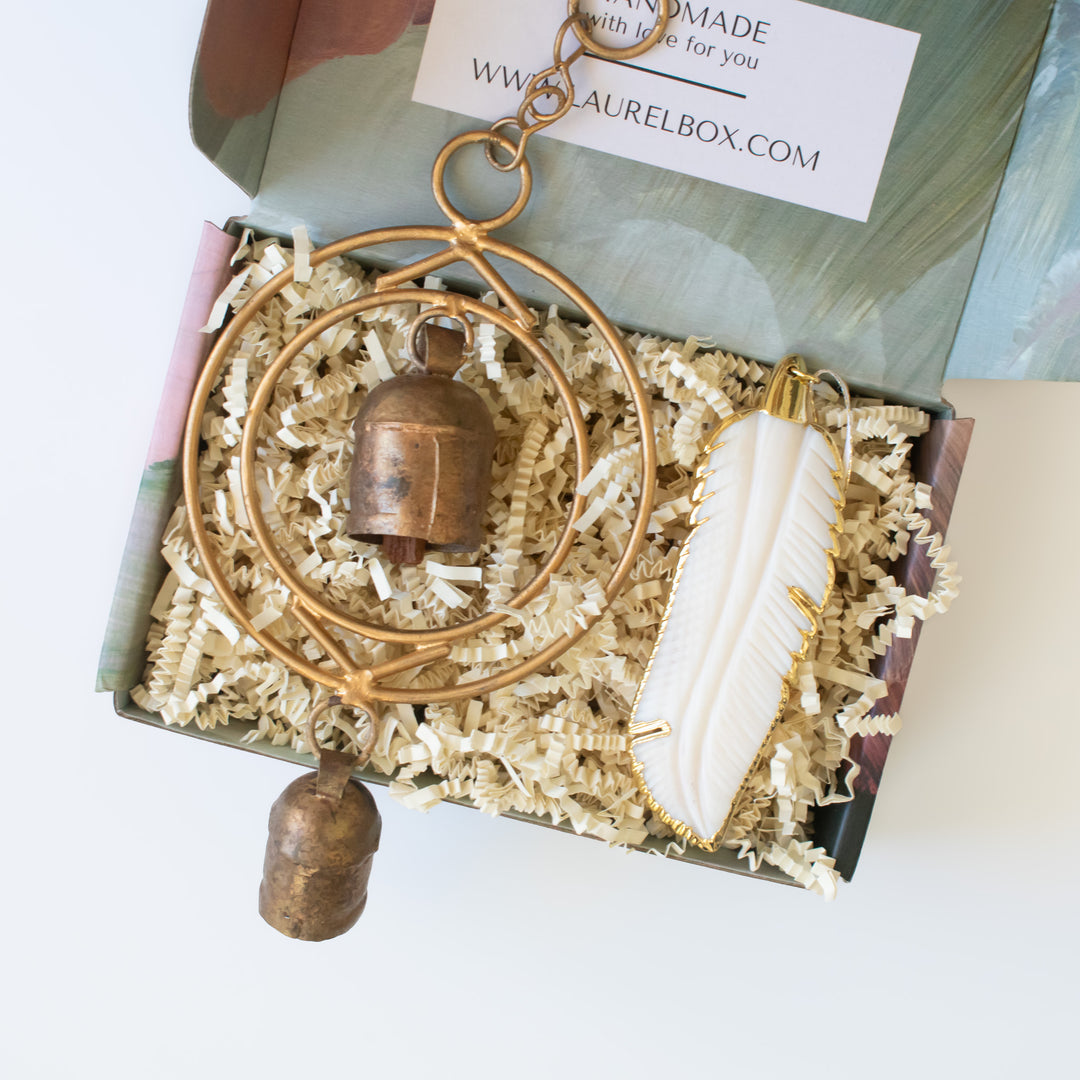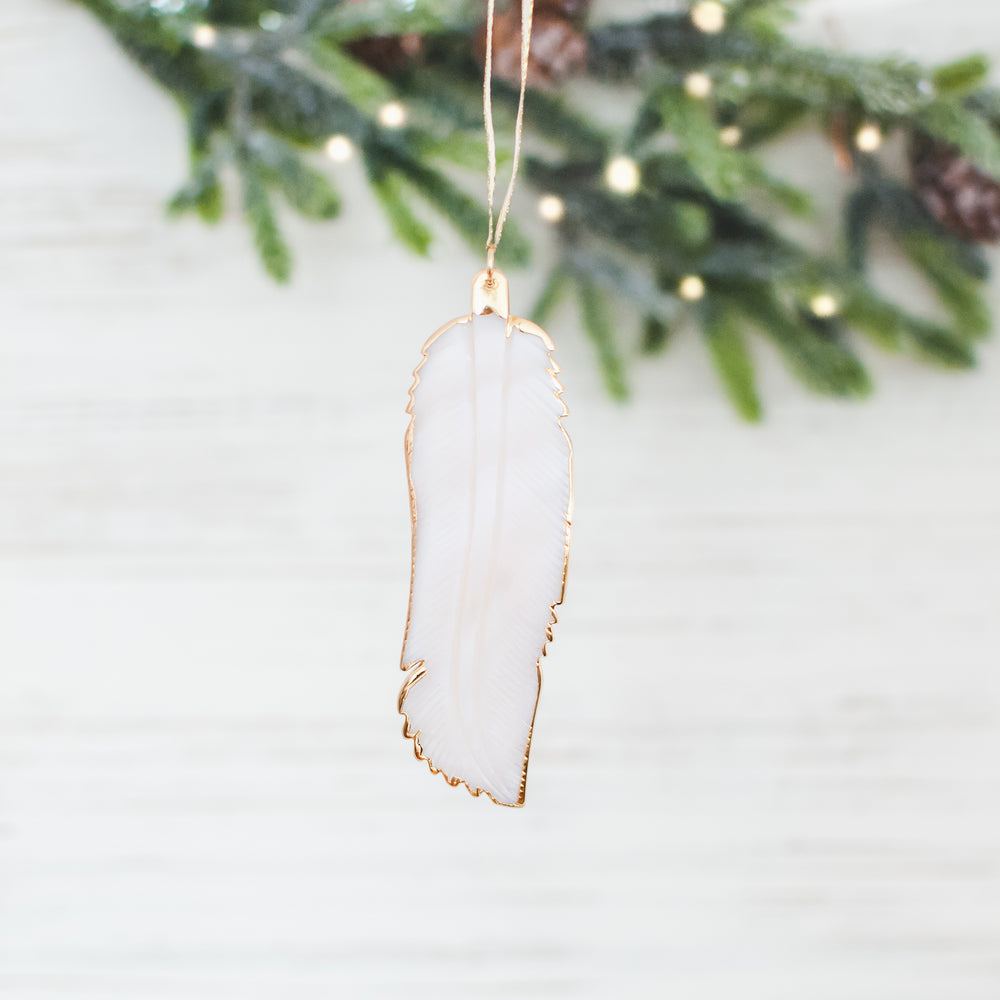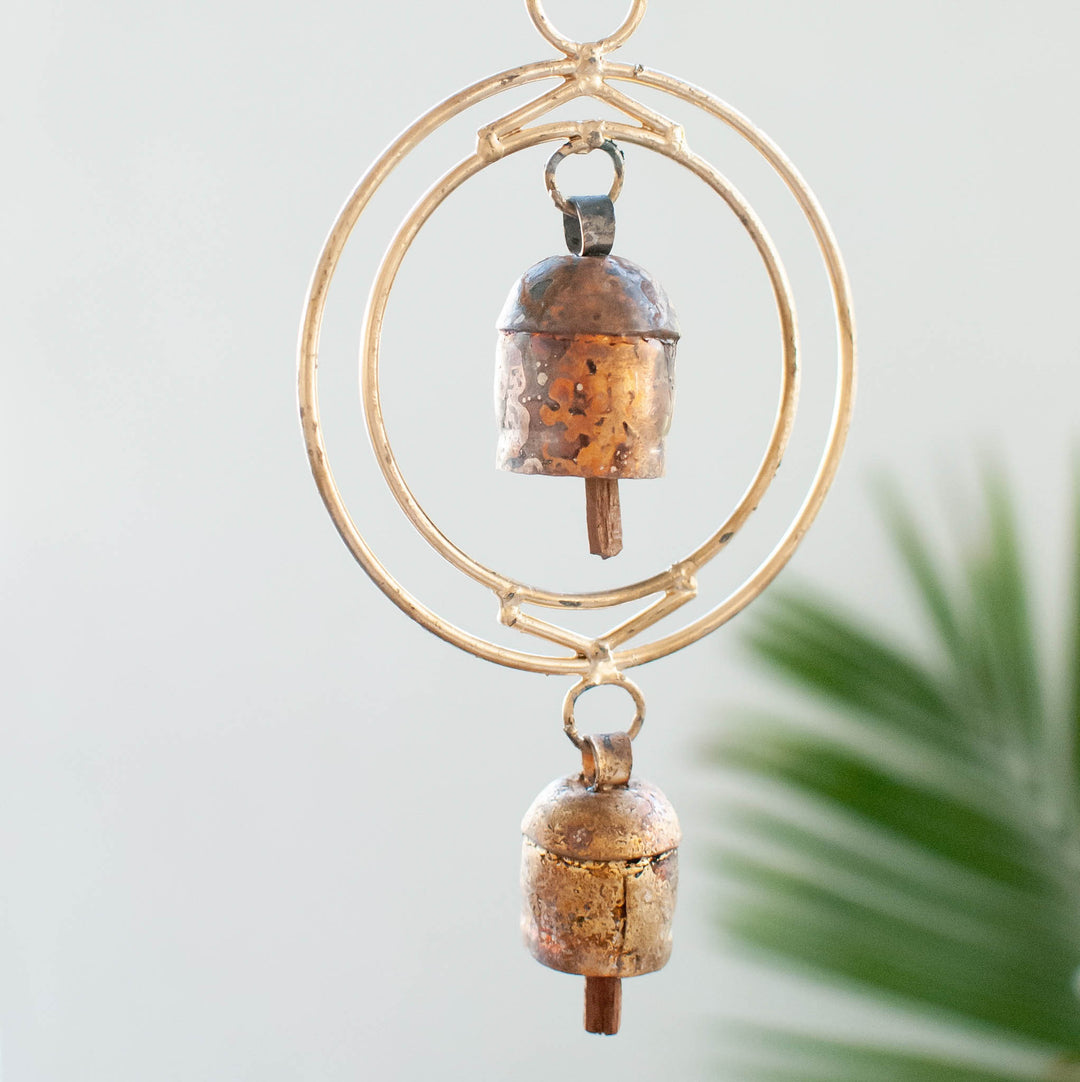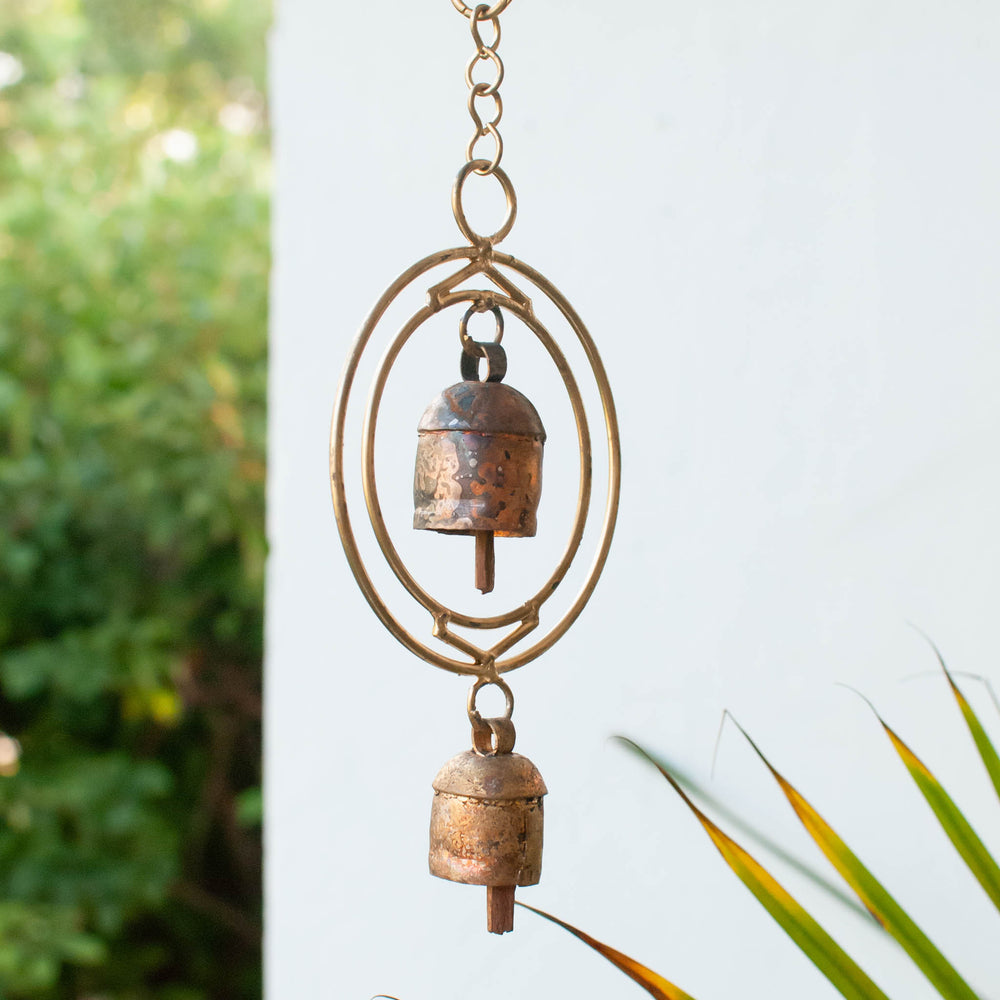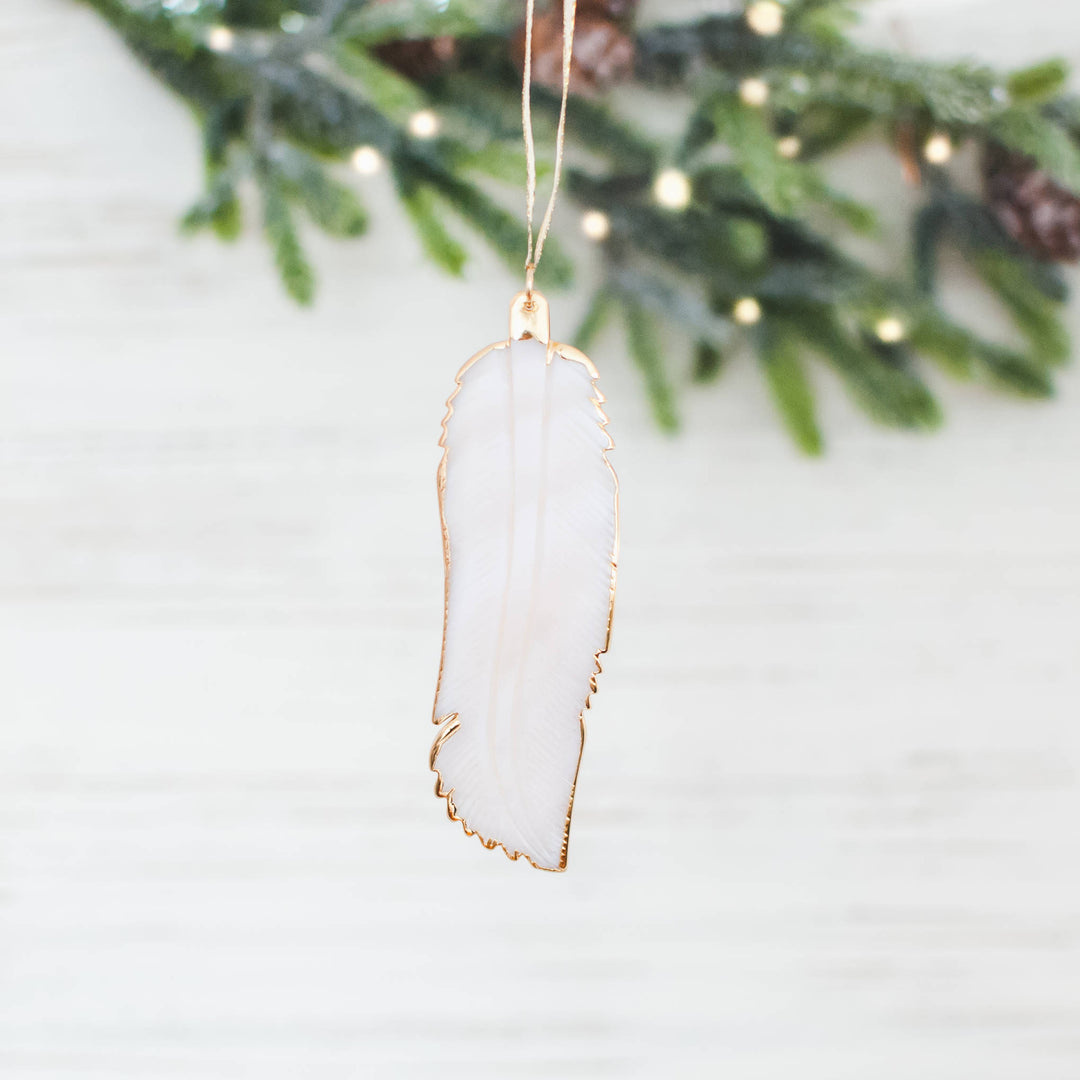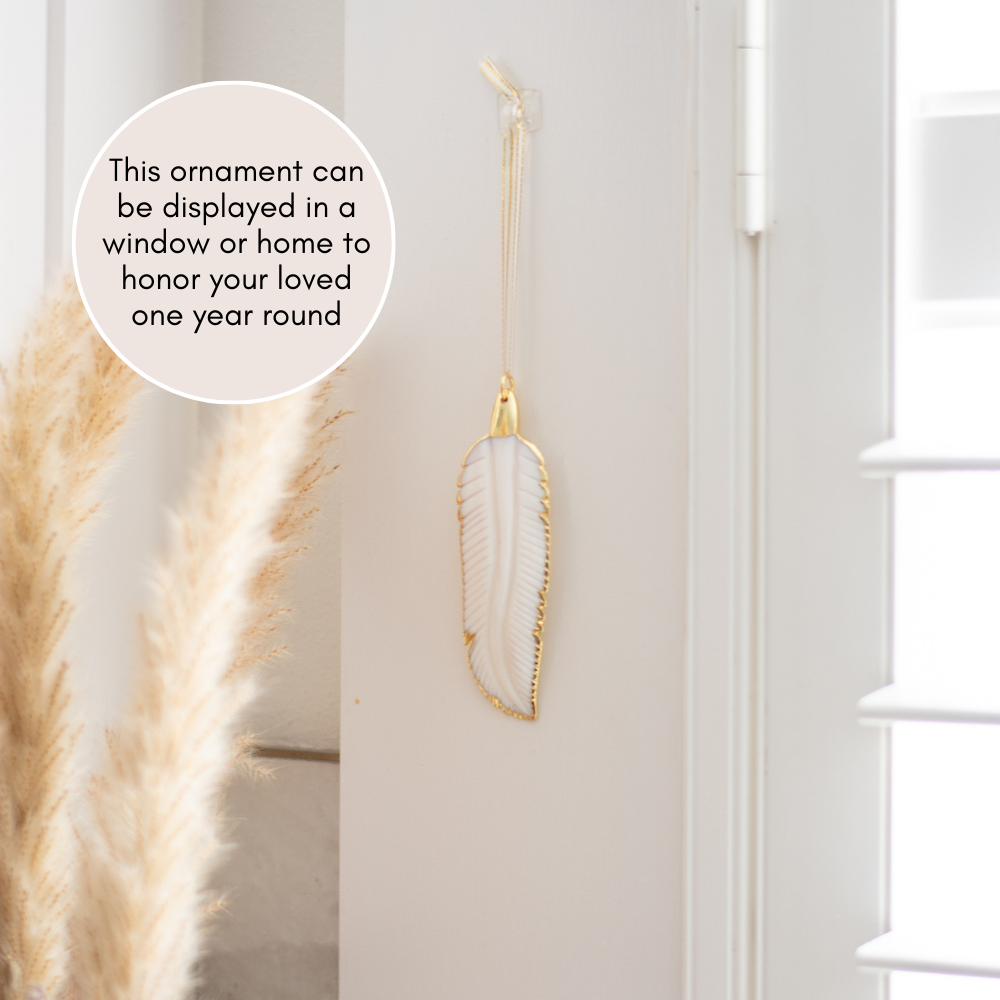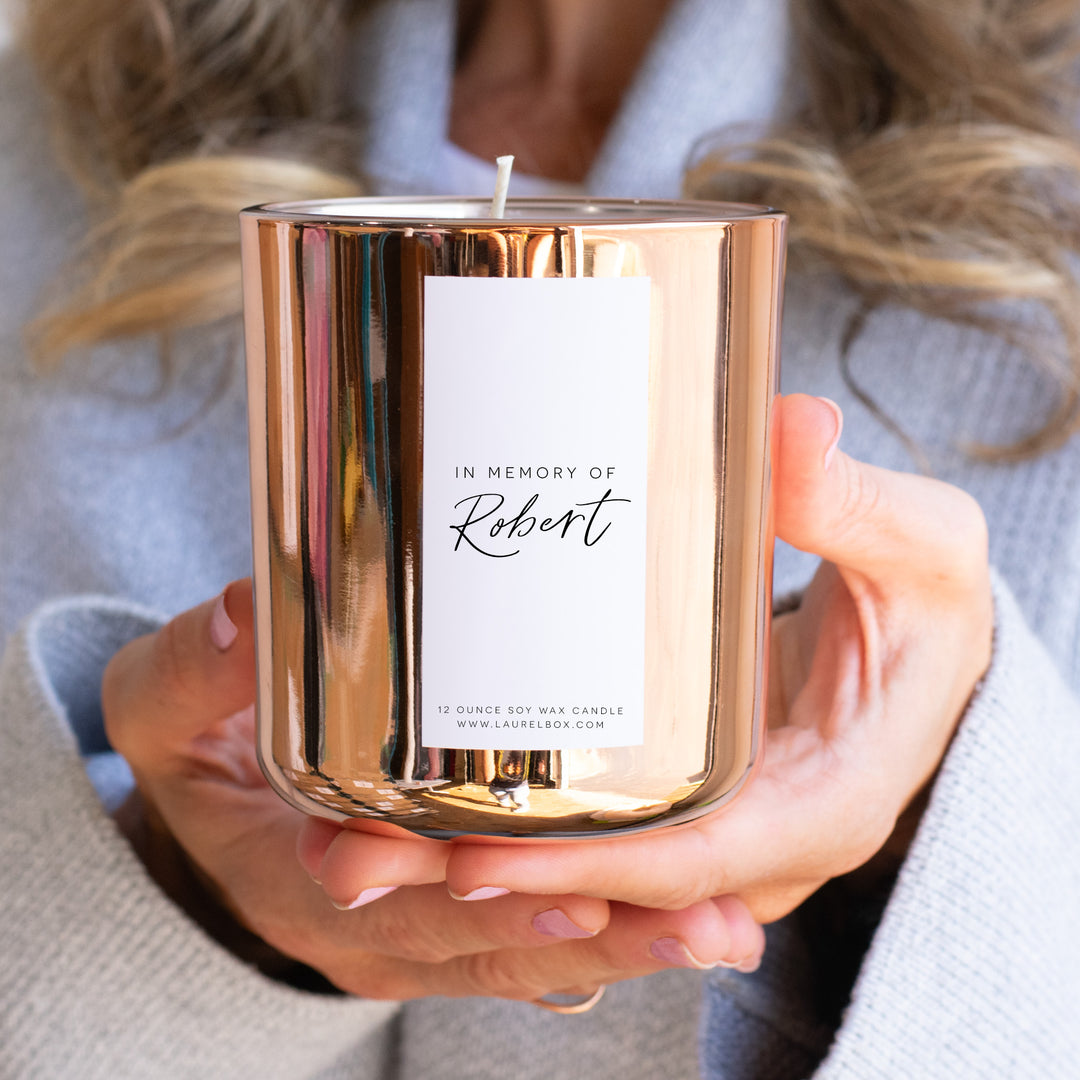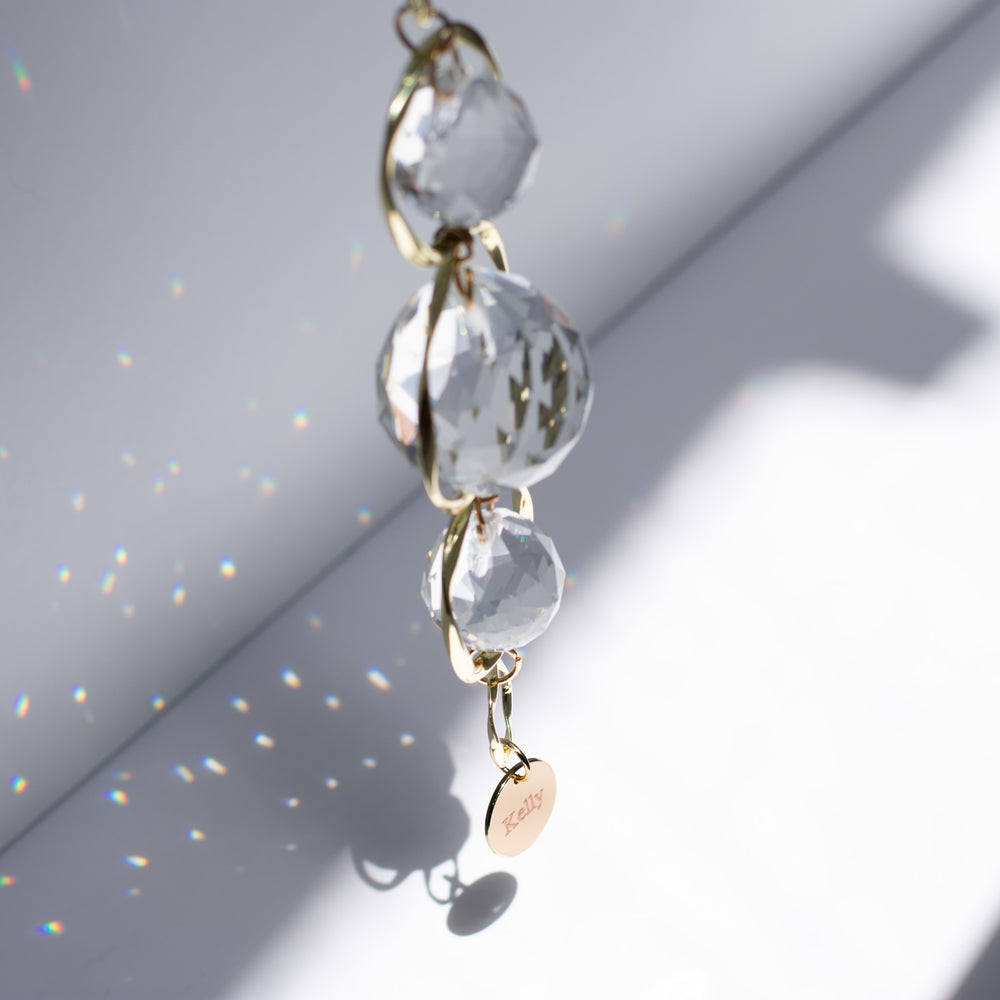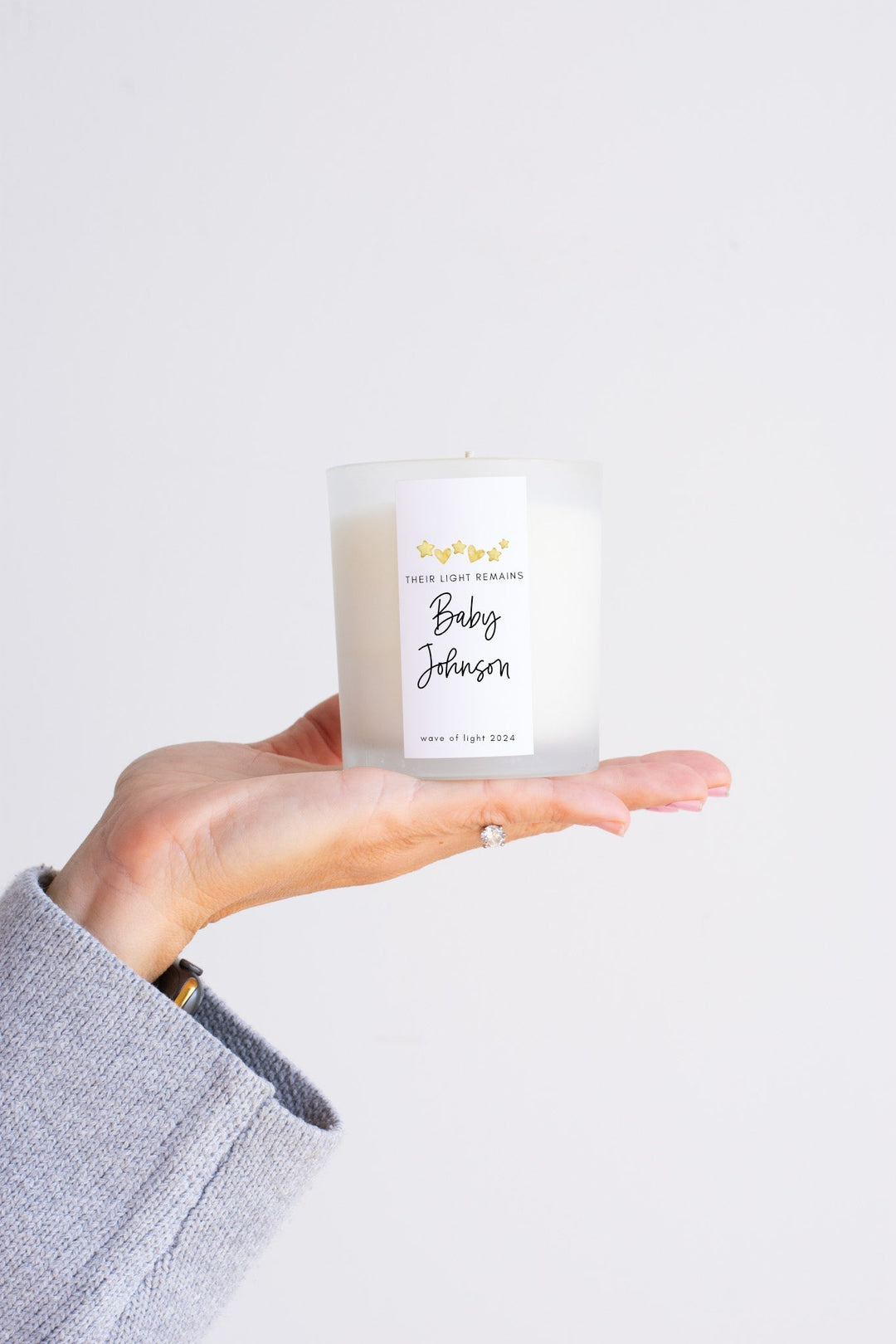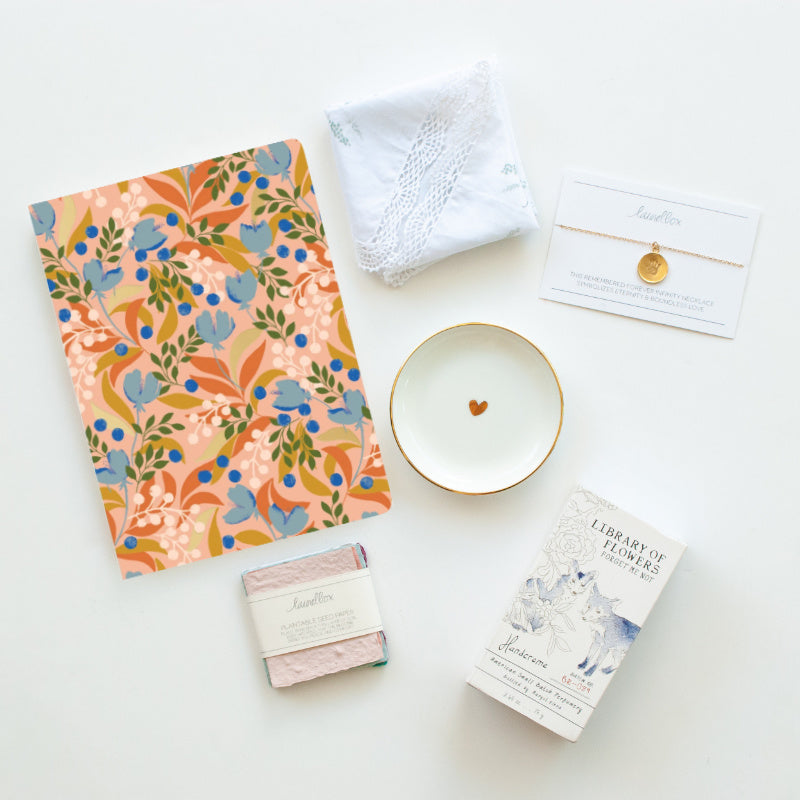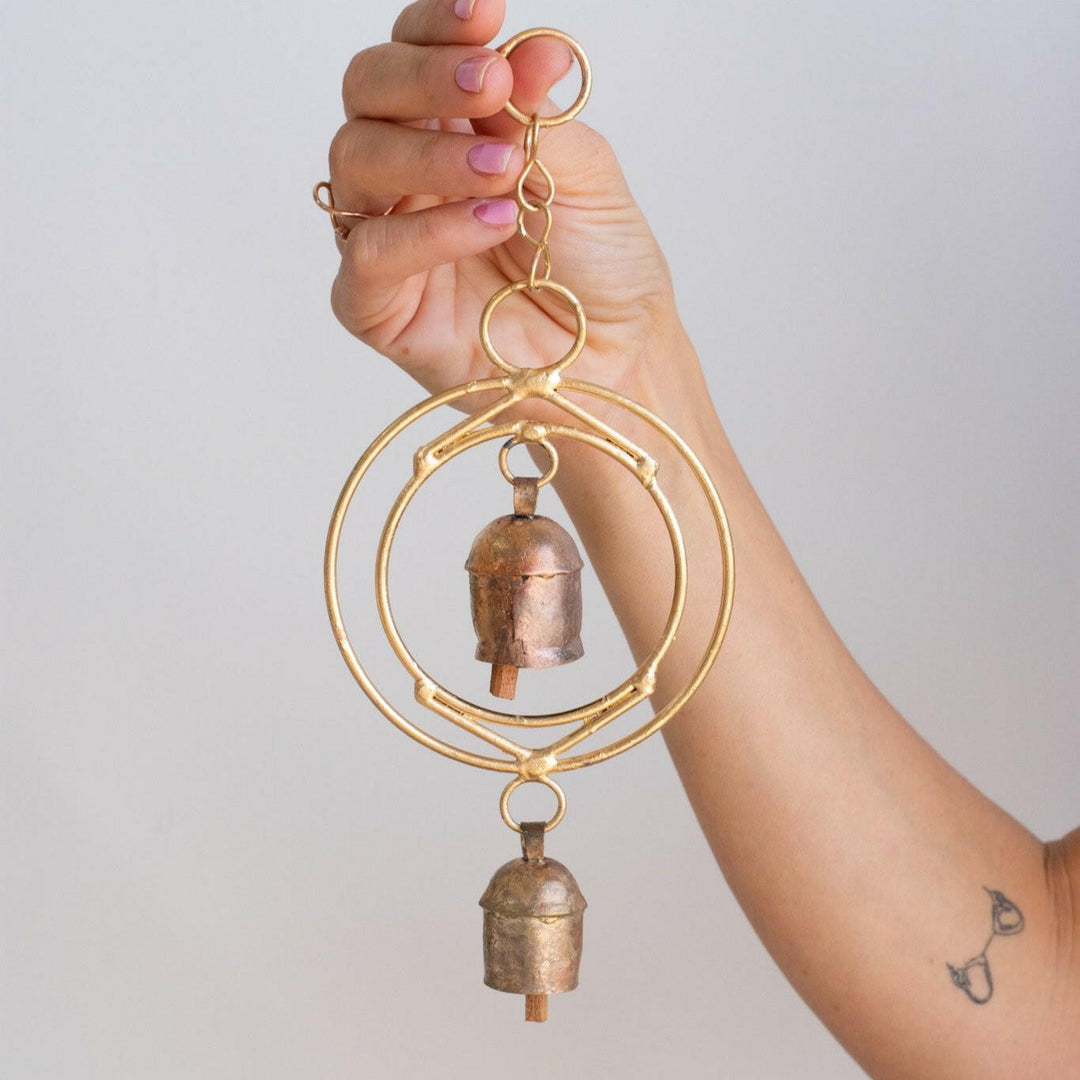
How to Start a Grief-Sensitive Morning Routine
Mornings can be especially challenging when you are grieving. But a gentle self-care routine can help provide feelings of stability and comfort during a healing journey. This blog will offer practical tips for physical, emotional and mental healing as well as suggest self-care products to create a grief-sensitive morning routine. We’ll also mention some things to avoid while grieving. Let’s jump in!
Self-Care & Grief
Taking care of yourself is an important element to anyone’s healing journey. Self-care involves prioritizing your physical, emotional and mental well-being while processing the loss of a loved one. Creating a morning routine can be helpful in that it creates stability and normalcy in an otherwise uncertain time. There are so many aspects of death that are out of our control. Bringing a sense of rhythm to your day can help stabilize you on your grief journey.
Let’s Get Physical
It can be easy to neglect our physical bodies in the days and weeks after a loss. “Healthy” lifestyles go out the window as we navigate funerals, estate challenges and questions from those around us. Sometimes it can be difficult to eat. Loss of or increased appetite, fatigue, upset stomach, insomnia or sleeping too much are all common physical grief symptoms. Some ways to prioritize your physical health while grieving could include:
Set An Alarm For a Good Wake-Up Time: It can be very tempting to want to stay in bed as long as possible. Shutting out the world can feel easier than facing the realities of the morning. But choosing to face the day can be a helpful habit that brings consistency.
Take a Shower: When was your last shower? If you can’t immediately recall one, time for a scrub! For me, a morning shower helps wake me up and gives me a sense of purpose for the day. It’s almost like you are saying, “Ok, there is a chance I’ll see another human today. Better be ready!” Consider choosing a shower steamer to make the experience even more enjoyable.
Vitamin C Kickstart: I have been squeezing an entire lemon into 8 ounces of room temperature water first thing and it’s helped boost my immunity. That can be important during a season when you are depleted and run down. So before you grab the cup of coffee or mug of tea, choose some lemon water to hydrate you!
Eat a Healthy Breakfast: I know it’s easy to push off food until later, especially if you haven’t been hungry during your grief, but they always say breakfast is the most important meal of the day! Almost every morning I eat a breakfast hash bowl that is full of veggies, complex carbohydrates and protein. I roast a bunch of veggies and sweet potatoes and store them in the fridge. Cook some eggs, add the reheated veggies and slice an avocado and you’ve got a big healthy breakfast bowl to energize you for the day.
Make Time for Exercise: As much as you don’t want to, prioritize moving your body. It could look like a neighborhood walk while you listen to nature or an audio book, gardening outside, swimming or lifting weights at the gym. However you prefer to burn some calories, make sure you are taking time to exercise.
Respect Bedtime: We’ve all been in a season when we know we need to go to bed earlier. Most adults need 7 or more hours of sleep. If you want to have a solid *morning* routine, it starts the night before at bedtime!
Emotional Self-Care
Okay, you’ve been motivated to get your physical health in order with a quality morning routine. Now, let’s up the ante and focus on how your emotions play into a morning routine after loss. Some practical ways to incorporate self-care could look like:
Journal Each Morning: Writing down your thoughts and feelings can be a therapeutic and beneficial way to understand your emotions. I came across the following quote and couldn’t agree more. It read, “Journaling about grief really isn’t about the words, it’s about self-discovery and healing.” It doesn’t have to be perfect, organized, or a certain length. Just sit with your emotions and feelings and let your heart fall onto the paper. Journaling your thoughts can be messy, raw and scary, but isn’t that what grief actually is?
Mindfulness, Meditation: Deep breathing can be a helpful habit to incorporate into any self-care routine. There are some apps out there if you need help or prefer guided experiences.
Faith & Gratitude: My faith was so integral to my healing journey. I like to write my prayers down in a journal to keep me focused. You may want to read a few pages of C.S. Lewis’ A Grief Observed each morning. It’s an honest reflection from Lewis dealing with his wife’s death. Gratitude can play an important role in self-care and grief. Studies have shown gratitude can reduce toxic emotions like envy, resentment, frustration and regret. I’ve had success keeping a gratitude journal and writing down everything I’m thankful for. That can be “small” things like a cool breeze, a warm muffin or a favorite song or “big” items like housing, food security and loved ones.
A self care morning routine after loss can be a stable and helpful way to start each day. I find that having a fun journal and coffee cup (pictured) motivates me to spend some moments reflecting before the stress of the day hits.

Mental Health & Grief
Losing a loved one can be a cataclysmic event. When we unexpectedly lost our second son Cooper at full term, we almost felt like our lives had been split into two parts. B.C. - before Cooper and A.D. - after his death. We were so fundamentally changed and our lives shifted so dramatically, it rocked every aspect of our world. Maybe you feel the same way? If your loss was especially difficult, you may be experiencing depression, anxiety, Posttraumatic Stress Disorder (PTSD) or complicated grief. Here are some grief-sensitive habits that focus on your mental well-being.
Talk to a Professional: Grief counselors are trained to navigate the complexities that arise in losing a loved one. Even just a few sessions could provide healthy coping strategies that give you the tools to move forward in your grief journey.
Find Community: There is something about shared experiences that bring people together. We at laurelbox have tried to build an encouraging community of women who support each other through our hardest times. We make space for your unique grief journey and allow you the time you need to process your loss.
Honor Their Life: Finding ways to honor their life is an important aspect to a selfcare routine. You could create a memorial garden and hang some personalized windchimes, light a candle, or create a memory book with pictures and mementos. Wearing jewelry with their name or initials is another thoughtful way to honor a loved one’s legacy.
Bestsellers
Habits to Avoid
As much as we’ve listed healthy strategies and self-care routines after loss, there are some coping strategies that are not helpful. Some pastimes to avoid include:
Doomscrolling: It’s the act of spending excessive time watching, reading or consuming news, often negative, on the web. Doomscrolling can increase anxiety, depression, worry, poor sleep habits, mental health concerns and so much more! Set limits, turn off notifications, find alternative ways to spend your time and go screen free for certain hours or days.
Limit Social Media: You can be having a great morning and enjoying life and then open social media only to see something that sends you into a tailspin of emotions. Facebook memories aren’t always helpful. Just me? I’ve found it beneficial to make myself wait to open social media apps until I’ve spent time journaling, praying and reading my Bible. It puts me in a better head space for the day! If you haven’t already, pick up a copy of Jonathan Haidt’s #1 New York Times’ bestseller The Anxious Generation to understand how social media affects young brains (but older ones, as well!)
Excessive Drinking/Substance Abuse: When you are sad, it’s easy to pour another glass of wine, crack open another beer or choose other destructive habits as a way to mask the pain. Resist the temptation and ask those around you to keep you accountable. There is a whole swath of people choosing a “Sober Curious” lifestyle and rave about the health benefits!
Conclusion
We hope this has been helpful in breaking down ways to create a grief-sensitive self care morning routine. We talked about how to keep you physically healthy with best practices for a morning routine after loss. We delved into the emotional and mental health side of grief and ways to prioritize positive habits. We also suggested some self-care gifts that can provide comfort and encouragement during any healing journey. Finally, we listed habits to avoid like doomscrolling. It’s important to take care of yourself after experiencing loss. We hope you found some ideas to incorporate into your morning self care routine after loss.
LANNA BRITT
Lanna Britt was a national news producer in Washington DC for nearly a decade covering politics, breaking news and current events. She now lives with her husband and three children in Richmond VA. She has two sweet babies she’ll meet again in heaven.
